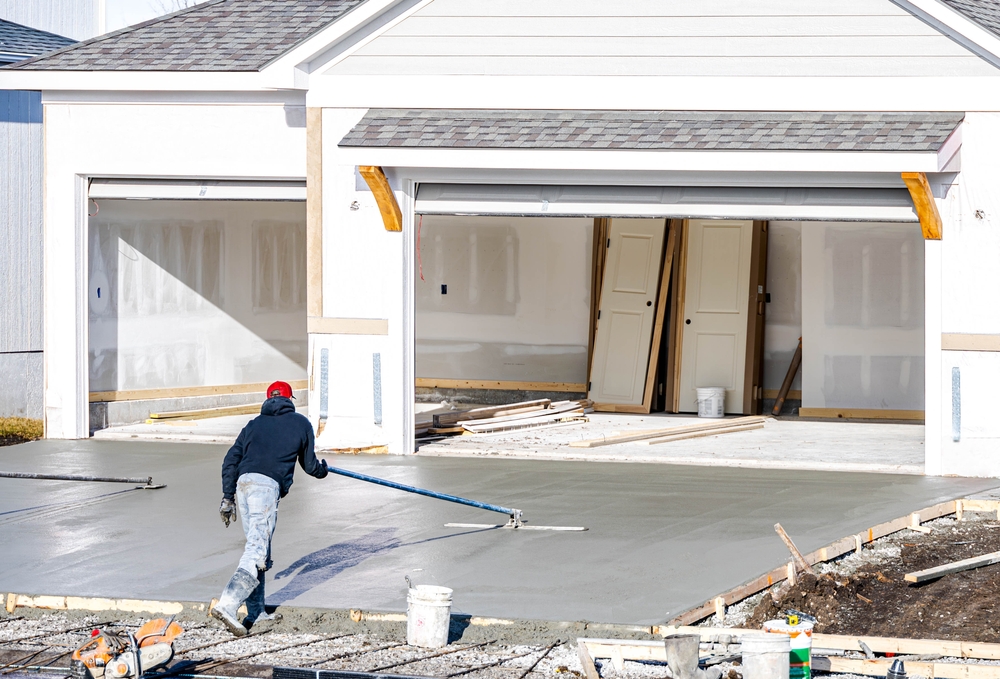

Concrete driveways are a substantial investment and require proper maintenance to ensure longevity and aesthetic appeal. One of the crucial aspects of maintaining a concrete driveway is sealing it regularly. However, the frequency of sealing can depend on various factors such as climate, usage, and the type of sealant used. In this blog post, we’ll delve into these considerations to answer the question: how often should I seal my concrete driveway?
Understanding Concrete Driveway Sealing
Before discussing the frequency of sealing, it’s important to understand why sealing is necessary. Concrete, while durable, is porous and can absorb moisture, oils, and other substances. Over time, this can lead to stains, cracks, and even structural damage if not properly addressed. Sealing creates a protective barrier on the surface of the concrete, preventing these substances from penetrating and thereby extending the life of your driveway.
Types of Sealants
There are different types of sealants available for concrete driveways, including acrylic-resin based sealers, penetrating sealers, and polyurethane sealers. Each type has its own characteristics and lifespan, which can influence how often you need to reapply them.
Factors Influencing Sealing Frequency
Several factors determine how frequently you should seal your concrete driveway:
1. Climate and Weather Conditions
The climate in which you live plays a significant role in the wear and tear of your driveway. Driveways exposed to harsh winters with freezing temperatures and frequent snowfall may need more frequent sealing to protect against freeze-thaw cycles and deicing chemicals. Conversely, driveways in milder climates may require less frequent sealing.
2. Usage
The amount of traffic your driveway receives also affects sealing frequency. A heavily used driveway with vehicles constantly coming and going will experience more wear and tear than one that sees lighter traffic. Sealants on high-traffic driveways may wear out more quickly and require more frequent reapplication.
3. Type of Sealant Used
As mentioned earlier, the type of sealant you choose will impact how often you need to seal your driveway. Acrylic-resin based sealers typically need to be reapplied every 1-3 years, while penetrating sealers can last 5-10 years before needing to be reapplied. Polyurethane sealers fall somewhere in between, typically lasting 3-5 years.
4. Age and Condition of the Driveway
Newly poured concrete driveways may need to be sealed more frequently in the first few years to protect the surface as it cures. Older driveways that have not been regularly sealed may also require more frequent sealing to restore protection and enhance appearance.
Recommended Sealing Schedule
Based on these factors, here’s a general guideline for how often you should seal your concrete driveway:
- Every 1-3 Years: If you’re using an acrylic-resin based sealer, plan to reapply it every 1-3 years. This interval ensures that your driveway remains adequately protected against stains and moisture penetration.
- Every 3-5 Years: For polyurethane sealers, which offer a longer-lasting protective barrier, you can typically wait 3-5 years before resealing. This type of sealant strikes a balance between durability and ease of maintenance.
- Every 5-10 Years: Penetrating sealers provide deep protection into the concrete and can last 5-10 years before needing to be reapplied. This type of sealer is ideal for driveways that experience moderate to light traffic and are not exposed to extreme weather conditions.
Signs That Your Driveway Needs Sealing
Apart from following a regular maintenance schedule, it’s essential to monitor your driveway for signs that indicate it needs to be sealed sooner than expected. These signs include:
- Water Absorption: Sprinkle water on the surface of your driveway. If it beads up and does not penetrate the concrete, the seal is still effective. If it soaks into the concrete quickly, it’s time to reseal.
- Discoloration and Stains: If you notice that your driveway is becoming discolored or stains are penetrating the surface, it’s a sign that the protective seal is wearing off.
- Cracks and Flaking: Visible cracks or flaking on the surface of the driveway indicate that it’s no longer adequately protected and needs to be sealed to prevent further damage.
Conclusion
Regularly sealing your concrete driveway is essential for preserving its appearance and structural integrity. By considering factors such as climate, usage, type of sealant, and the age of your driveway, you can determine the appropriate sealing schedule. Following these guidelines will help ensure that your concrete driveway remains in top condition for years to come, minimizing maintenance costs and maximizing curb appeal. Remember, proactive maintenance is key to protecting your investment in your home’s exterior.
Need Concrete Contractors in Sanford, NC?
We are the area’s best concrete company. We specialize in concrete finishing of all types of concrete for residential and commercial customers. Our services include pavement, driveways, footings, sidewalks, decorative concrete, hauling, demolition, and property grading. We’re fully insured. Contact us today for quality workmanship and service.

